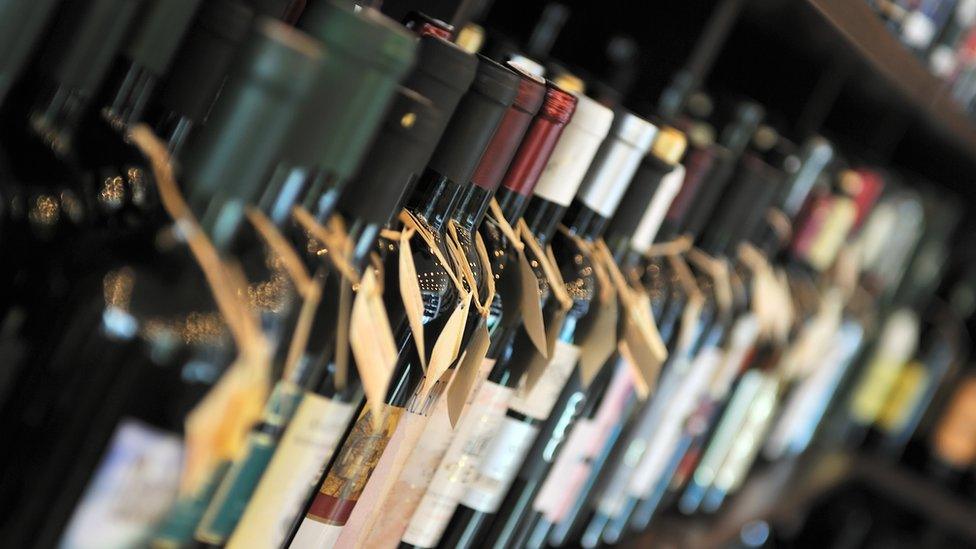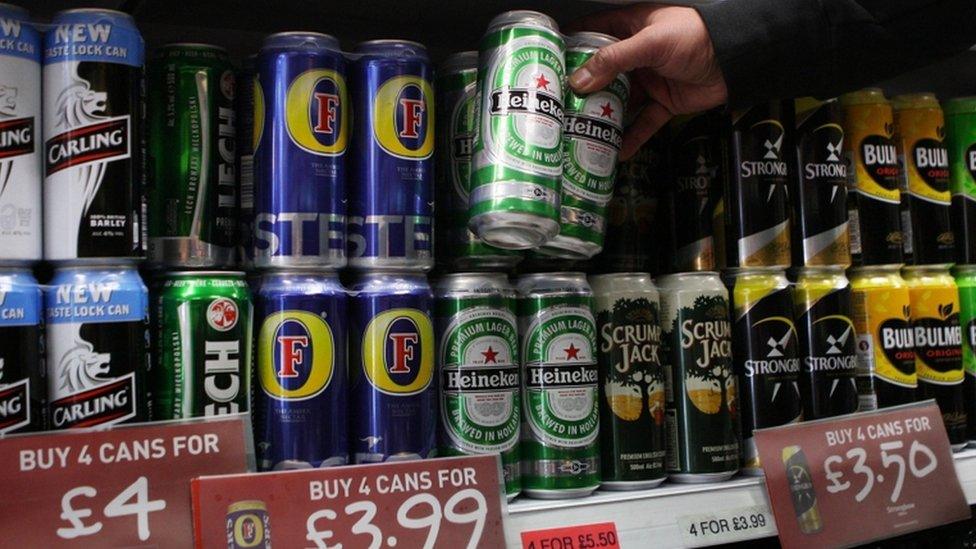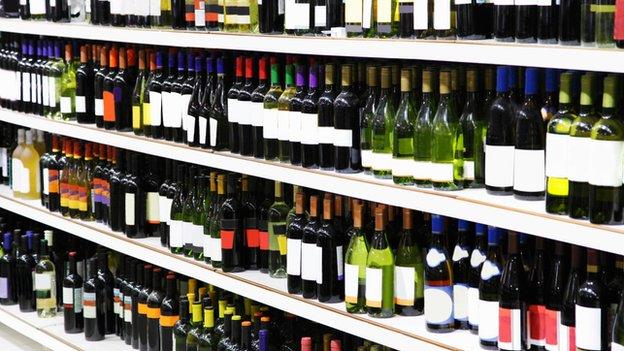Bid to appeal against minimum alcohol pricing to Supreme Court
- Published

The Scottish government had called on those in the drinks industry to end the legal process
The Scotch Whisky Association has applied to appeal in the UK Supreme Court against minimum pricing for alcohol in Scotland.
The Court of Session ruled against the group in October after a lengthy legal challenge against the policy, which would set a minimum unit price of 50p.
But the SWA said it had a "strong view that minimum pricing is incompatible with EU law" and would appeal further.
Health Secretary Shona Robison said the decision was "deeply disappointing".
The Scottish government wants to press ahead with setting a minimum price per unit of alcohol "as soon as possible".
The policy of setting a minimum price of 50p per unit of alcohol was approved by MSPs in 2012 but has been tied up in legal challenges ever since, with the SWA claiming it is in breach of trade law.
They say other policies should be considered as an alternative to minimum pricing, including an increase in tax.
The Scottish government insists the law could save lives by ending cheap alcohol prices.
Under the plans the cheapest bottle of wine (9.4 units of alcohol) would be £4.69, a four-pack of 500ml cans of 4% lager would cost at least £4 and a 70cl bottle of whisky could not be sold for less than £14.
The matter has now been through the Scottish courts twice. It was referred to the European Court of Justice, which ruled in December 2015 that European law may have been breached by the policy - but concluded that it was ultimately up to the national courts to make a decision about whether to implement it.
'Strong view'
Julie Hesketh-Laird, acting chief executive of the SWA, said the group had "carefully considered" the latest ruling before deciding to appeal.
She said: "This is not a decision we have taken lightly. However given our strong view that minimum pricing is incompatible with EU law and likely to be ineffective, we now hope that our appeal can be heard quickly in the UK Supreme Court.
"Having studied the ruling, we believe the Scottish court has not properly reviewed the legislation's compatibility with EU law as required by the European Court's judgement."
First Minister Nicola Sturgeon addressed the matter during her weekly question session at Holyrood, urging the SWA not to appeal to allow the "life-saving" policy to proceed.
Health Secretary Shona Robison said the group's decision was "deeply disappointing".
She said: "I think the SWA may want to consider that minimum unit pricing was passed with the overwhelming support of the parliament, has been tested in Europe, and has now been approved twice in the Scottish courts.
"We remain committed to ongoing dialogue with the alcohol industry. Should the SWA drop their appeal, and accept that the time has now come to implement this measure that will save lives, they could expect very strong support from across Scotland.
"We remain determined to implement this policy as soon as possible, and we're confident that, like the Court of Session, the Supreme Court will find the policy to be lawful."
'Beggars belief'
Under the Courts Reform Act 2014, leave has to be given by either the Inner House of the Court of Session or the Supreme Court itself before appeals can be taken forward.
Alcohol campaigners said news of the appeal attempt was "shocking and saddening".
Alison Douglas of Alcohol Focus Scotland said the SWA was "ignoring both the will of the Scottish Parliament and the court's decision", adding: "Minimum pricing will save many lives and improve many more."
Erin Carlin, director of Scottish Health Action on Alcohol Problems, said it "beggars belief" that the legal battle could continue.
She said: "They know that they will not win this case in London. Everyone knows that. Meanwhile, 22 people die every week because of alcohol."
BMA Scotland chair Peter Bennie said: "We believe that this measure should be implemented without further challenge and that the Scotch Whisky Association is wrong to delay the policy with more legal wrangling which will do nothing to tackle the very real concerns that exist around alcohol harm."
- Published25 October 2016

- Published21 October 2016

- Published23 December 2015
